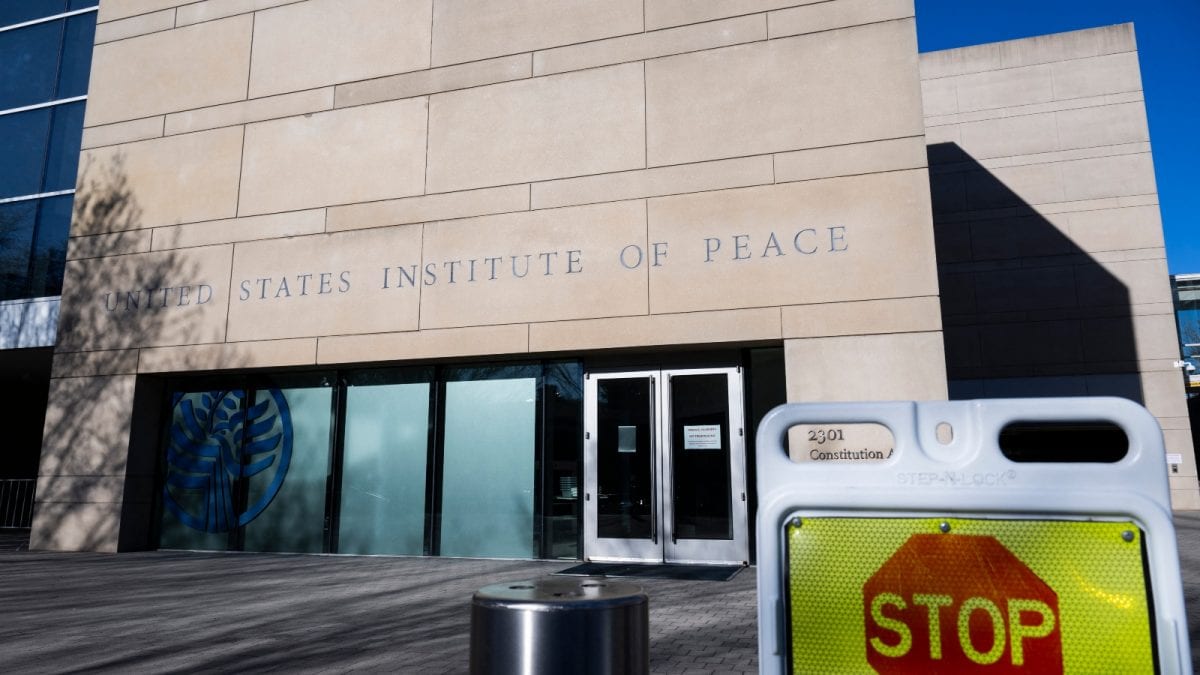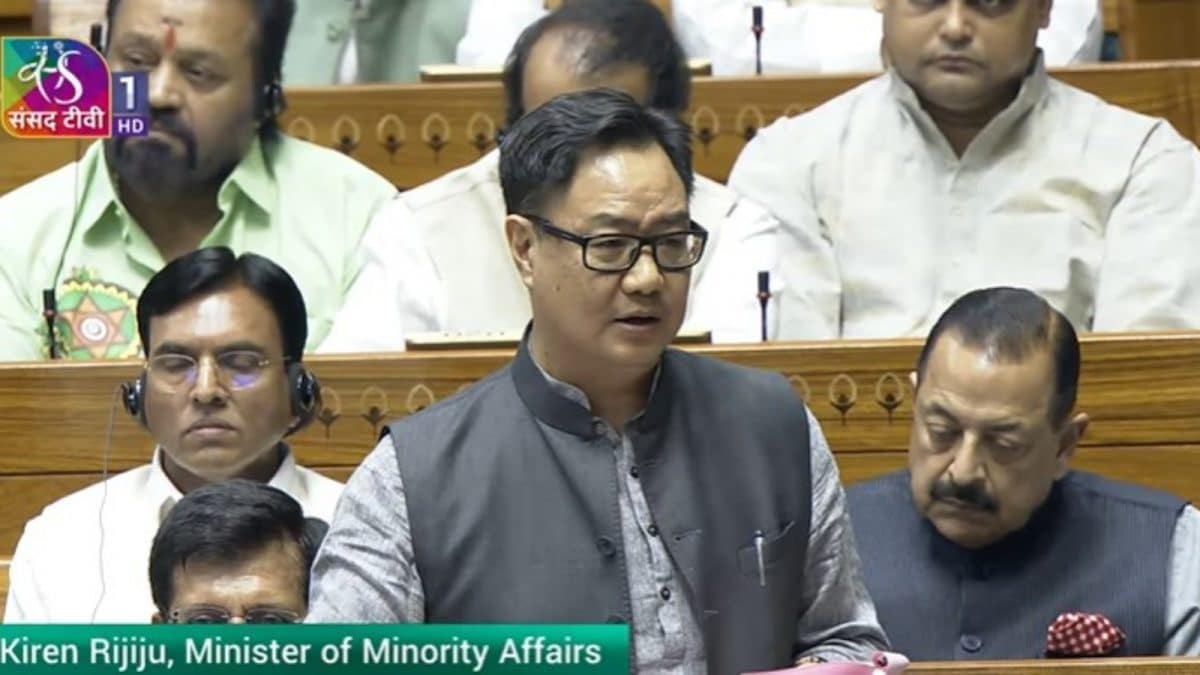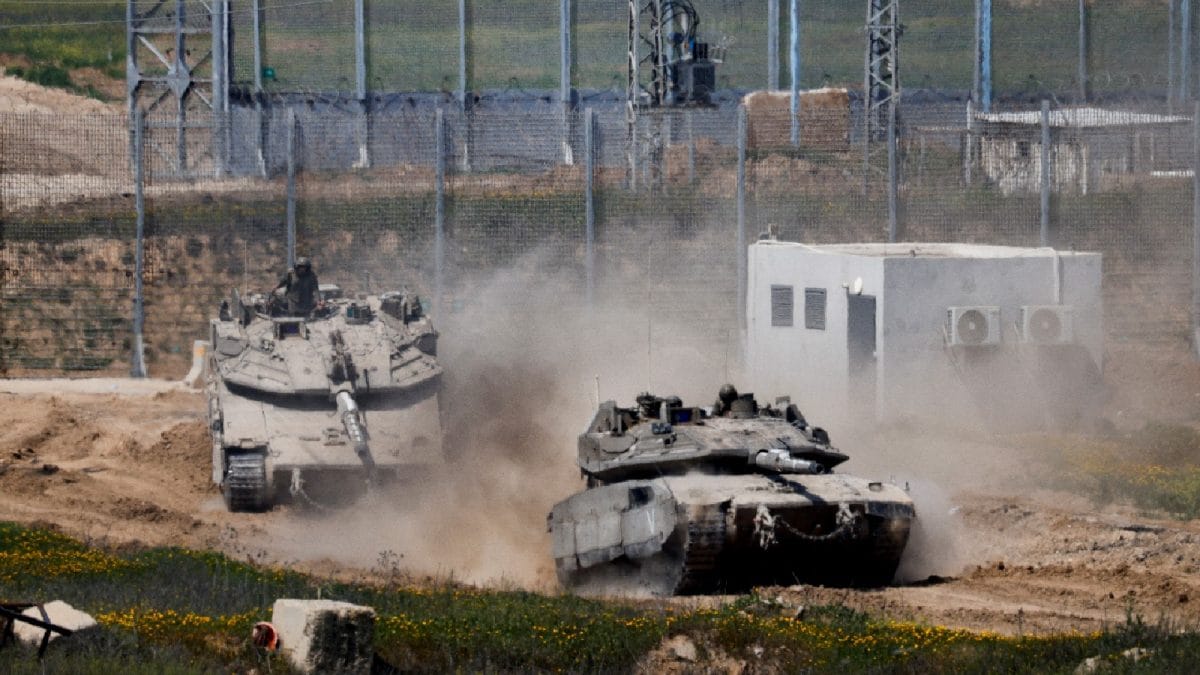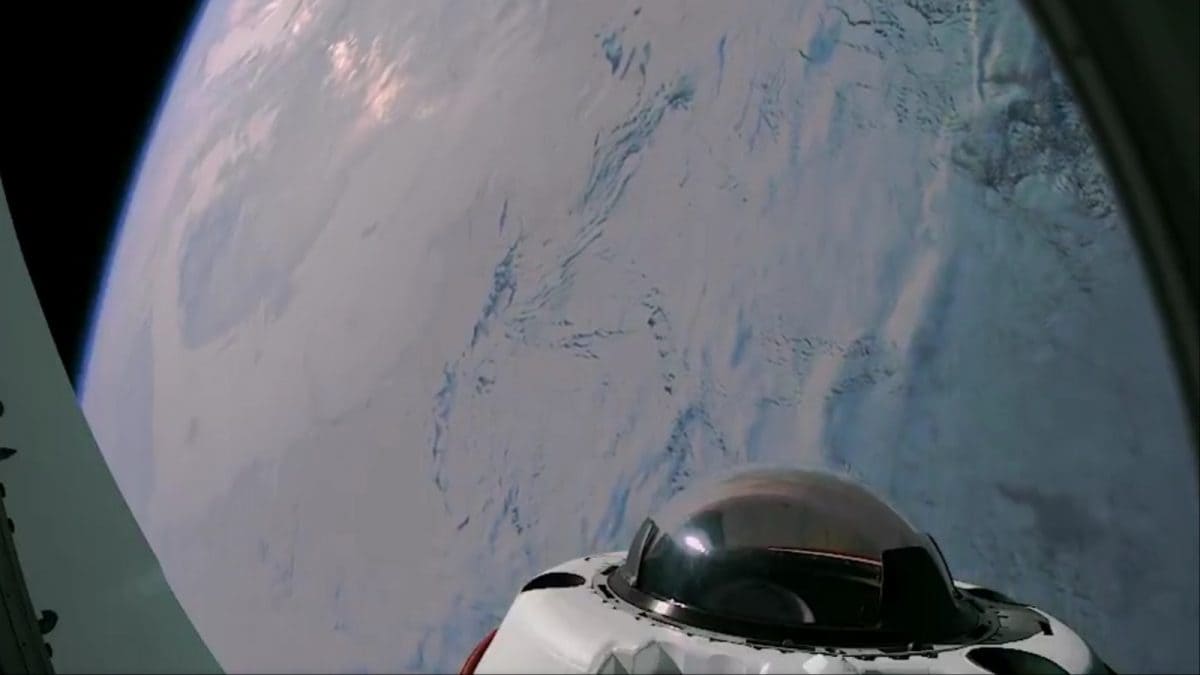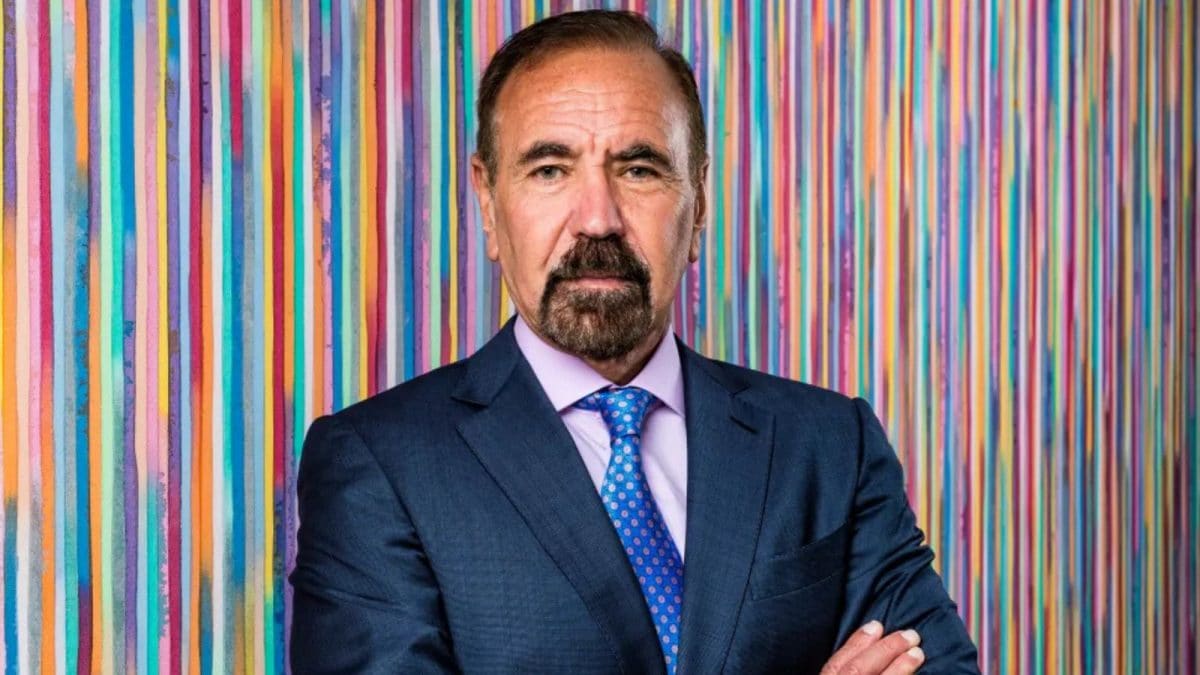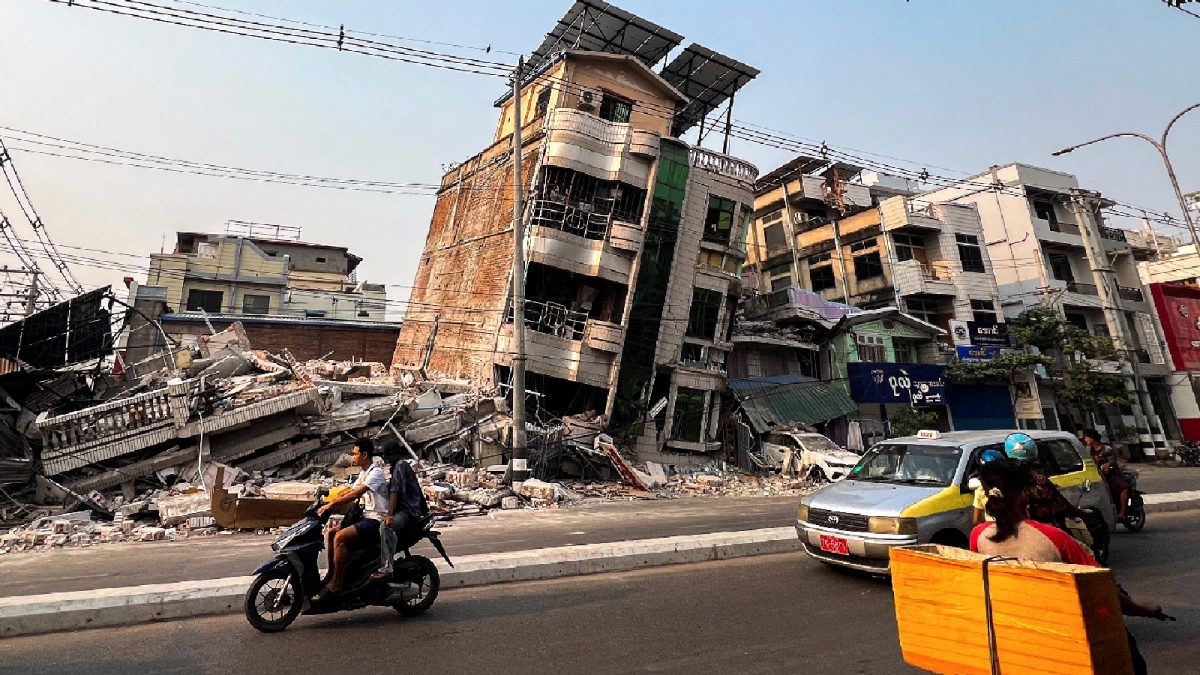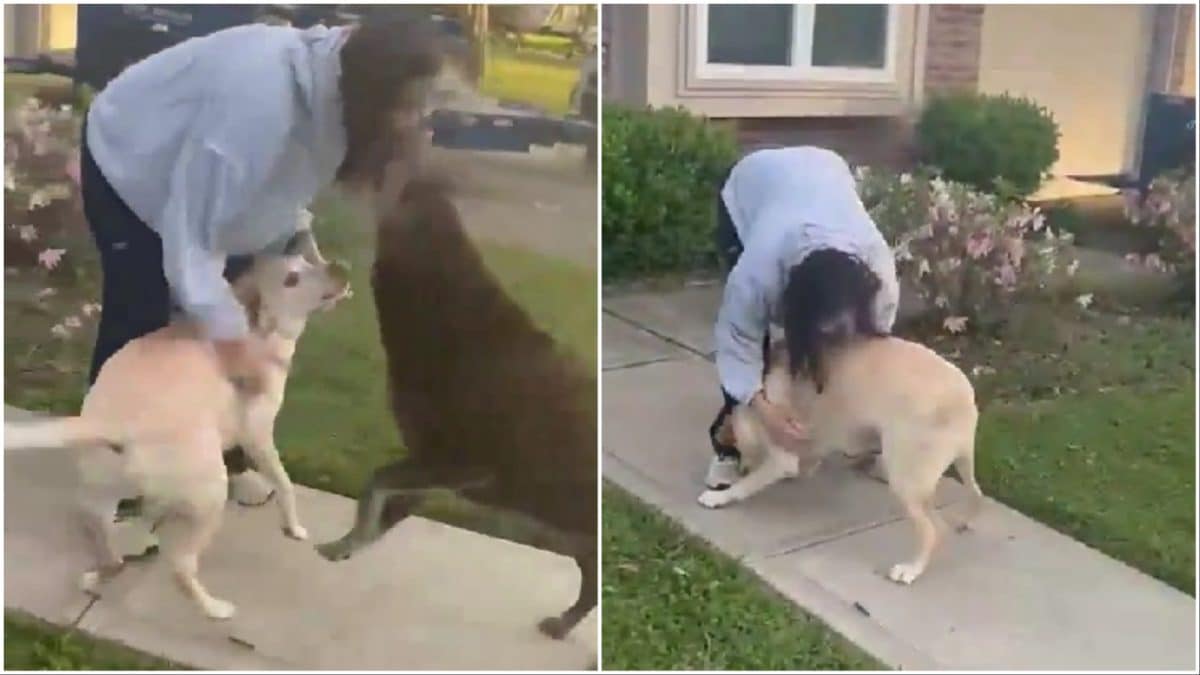PM: Australia’s position on Gaza unchanged in wake of Trump comments
We’ve moved away from health, and Anthony Albanese is immediately asked about Donald Trump’s statement that the US would take over and own the Gaza Strip.
Albanese says he doesn’t do “running commentary” and continues to support a two-state solution in the Middle East.
Australia’s position is the same as it was this morning, as it was last year and it was 10 years ago and it was under the Howard government.
Another reporter tries to draw him out further on Trump’s comments but Albanese doesn’t want to bite.
He also asks whether the government is considering mandatory minimum sentences for terrorism offences. Albanese says:
On the issue of antisemitism, we have a very clear position. I want to see people who are perpetrators of … [these] crimes hunted down, put in the clink and dealt with. We will provide the authorities all of the resources to do so.
Key events Show key events only Please turn on JavaScript to use this feature
Queensland government working to secure supplies for flood-hit areas – minister
Emergency management minister Jenny McAllister did a press conference a little earlier from north Queensland with an update on the floods.
She said she was working with the state, emergency services and volunteers supporting the region.
The government has announced financial support for families in impacted regions, but there are also concerns around ensuring residents stuck in flood waters or around them are able to get access to food and essential supplies. McAllister said:
Today our government is convening a meeting of the key private sector in the food supply chain so we can start exploring with them steps that need to be taken to secure supplies into Queensland and far north Queensland.

Australia ‘will be consistent’ on Gaza – PM
Albanese is asked again on Trump’s comments, and whether Australia would be prepared to send Australian defence personnel into Gaza.
The prime minister reiterates Australia’s diplomatic position hasn’t changed.
When it comes to our position, we have not received any request regarding the rebuilding of Gaza. What we have said, though – clearly, we’ve supported a ceasefire. We’ve supported hostages being released. And we’ve supported aid getting into Gaza. There is a need to do that, and Australia is willing to assist getting aid into Gaza to provide that support. We have done so. That is consistent with what Australian governments have always done, which is to provide support.
There are more questions here on whether the government should be calling out Trump’s statement. Albanese says the government will be consistent.
We will be consistent, as we are. I’ve also said that I’m not going to, as Australia’s prime minister, give a daily commentary on statements by the US president. My job is to support Australia’s position.

PM: Australia’s position on Gaza unchanged in wake of Trump comments
We’ve moved away from health, and Anthony Albanese is immediately asked about Donald Trump’s statement that the US would take over and own the Gaza Strip.
Albanese says he doesn’t do “running commentary” and continues to support a two-state solution in the Middle East.
Australia’s position is the same as it was this morning, as it was last year and it was 10 years ago and it was under the Howard government.
Another reporter tries to draw him out further on Trump’s comments but Albanese doesn’t want to bite.
He also asks whether the government is considering mandatory minimum sentences for terrorism offences. Albanese says:
On the issue of antisemitism, we have a very clear position. I want to see people who are perpetrators of … [these] crimes hunted down, put in the clink and dealt with. We will provide the authorities all of the resources to do so.
Federal funding growth caps ‘encourage efficient delivery’ of hospital services: Butler
NSW has also been dealing with resignations of its psychiatrists in public hospitals. Butler reiterates his concerns that a mass resignation would be “catastrophic”.
Encouraging all parties to get back to the table and try to resolve this – but also, at the same time, voicing my enormous admiration for the work of public psychiatrists. This is one of the toughest jobs in the health system that we have.
He’s then asked whether there’s a risk the federal government will have to front up more cash, as credit ratings agencies threaten to downgrade states.
A tenet of our hospital funding agreements, going back to the agreement struck by prime minister [Julia] Gillard, has been funding growth caps that the commonwealth insists on. So that gives us control in terms of our fiscal exposure, but also ensures that there’s a lever there to encourage efficient delivery of public hospital services by states.
‘Constructive engagement’ from states and territories on disability services
Asked about the disability services known as foundational supports which the commonwealth has been working on with the states and territories, Anthony Albanese says there has been “really constructive engagement” on the reforms.
This agreement – to put it in real dollar terms of what it means – commonwealth funding, the current financial year, is $30.19bn to the states. Next year, it will be $33.91bn.
Albanese emphasises all jurisdictions are engaged on the foundational supports.
Mark Butler adds to his answer:
The commonwealth’s very satisfied with progress on NDIS reform and also the development of foundational supports. But states and territories understand that the conclusion of a five-year deal – which is what they’re after and what was committed by the prime minister at the national cabinet meeting in December 2023 – remains tied to that NDIS reform process continuing as it would.
Demand and pressure on hospital system increasing, health minister says
The health minister, Mark Butler, says this is a “landmark” deal between the commonwealth, states and territories.
He said the hospital system was under very serious pressure around the country, particularly as the population got older.
Because of increases in activity and demand for public hospitals and very big increases in the prices – largely due to wage pressure in the public hospital system – under existing arrangements, the commonwealth share of public hospital funding is dropping, and without intervention, would drop substantially below 40% of the total hospital budget of our system.
He added the PM had committed to reaching a five-year deal for hospital funding with the states and territories, but wasn’t able to conclude the deal in time:
In part, because I think the WA government has now gone into caretaker [mode] and, unlike schools funding arrangements, we are not legislatively able to do separate hospital funding agreements with separate jurisdictions. It is an all-in arrangement.
PM says $1.7bn Medicare boost will increase federal funding for hospitals by 12%
States have been calling on the commonwealth to increase their share of public hospital funding.
That’s also come under pressure more recently, after the federal government negotiated to put foundational supports on to the states to reduce some of the federal funding burden on the NDIS.
Albanese says the new agreement means a “double digit increase in commonwealth funding” for public hospitals.
Under this new agreement, the commonwealth contribution to state-run hospitals will increase by 12% to a record almost $34bn in 2025-26. To give you some idea of what that means, in the Northern Territory, it gets the largest increase – a 30% increase as a result of the fact that they need this investment.
Anthony Albanese announces an additional $1.7bn in funding for public hospitals and health services.
This funding will be delivered to states and territories to help cut waiting lists, to reduce waiting times in emergency rooms, and to manage ramping.
PM offers condolences to family and friends of woman who died in Queensland floods
The prime minister, Anthony Albanese, is up, and begins offering his condolences on the two people who have died in the Queensland floods.
Sincere condolences for the family and friends of a woman who was found outside Ingham, 82 years of age. This is the second loss of life that we’ve seen in the Queensland floods. The Australian government continues to provide every support possible.
The prime minister will be standing up shortly in Canberra with the health minister, Mark Butler.
We’ll have more details on that soon, before we enter the slide down into question time.
Voters have choices outside ‘uninspiring red tie, blue tie’ system, Zoe Daniel says
The independent MP Zoe Daniel is speaking at the Press Club today, on the role the growing crossbench has played in this parliament.
Daniel says to voters there’s now a “choice” that goes beyond the “uninspiring red tie, blue tie” two-party system.

She says the crossbench have been instrumental in pushing the government to act more on climate, gambling, antisemitism and social media restrictions.
The community independents on the crossbench have become the literal and figurative spine of the house. We have not been cowed by name-calling and mansplaining, by those heckling like schoolyard bullies in Question Time, nor by the outsized dirty tactics outside it. We have stuck to our promises to our voters that we would listen to our communities and do what was in their best interests based on the evidence and the best outcomes for most people.
… Anyone who says what have you done, well, how long have you got?
‘Not a policy we’ve put forward’: Leeser responds to Trump’s Gaza comments

Sarah Basford Canales
Julian Leeser, the opposition’s assistant foreign affairs spokesperson, says the party’s policy on Gaza hasn’t changed after US president Donald Trump announced the US will “take over” the Gaza Strip and “level” it.
Appearing on Sky News on Wednesday, Leeser said the opposition’s policy still ultimately backs a two-state solution for Israelis and Palestinians but only after hostages are returned and Palestinian authorities recognise Israel’s right to exist.
When pressed on whether Leeser believed that position was now redundant if the US takes control of the strip, he said:
Our policy is – we note that the president’s put this policy forward, but it’s not a policy we’ve put forward.
In a joint press conference with the Israeli prime minister, Benjamin Netanyahu, Trump said the “US will take over the Gaza Strip” and relocate Palestinians living there to a “beautiful area with homes and safety … so that they can live out their lives in peace and harmony”.

Jonathan Barrett
Mortgaged households record steepest living cost increases
Workers experienced the steepest living cost increases over the past 12 months, while self-funded retirees recorded the smallest rises, according to new inflation data released by the Australian Bureau of Statistics.
The annualised data for the December quarter is similar to the ABS’s benchmark consumer price index, although it also calculates the cost of mortgages on a household.
Given workers are more likely to have mortgages than other cohorts, their living cost increases have been more extreme during the prolonged period of elevated rates.
Worker households recorded a 4% increase last year, according to the ABS’ selected living cost indexes, released today.
“The most significant contributor to increases in employee households’ living costs was mortgage interest charges,” the ABS said.
Mortgage interest charges rose due to higher mortgage debt levels and the continued rollover of expired fixed rate to higher variable rate mortgages.
The official CPI was 2.5% for the same period.
Self-funded retiree households saw costs rise by 2.5% in 2024, in line with the benchmark CPI, with the increases linked to price rises for recreation and cultural activities.
Government-funded energy rebates helped keep a lid on living cost increases, with the cohort consisting of pensioners and government payment recipients recording a 2.8% rise.

 1 month ago
1 month ago


